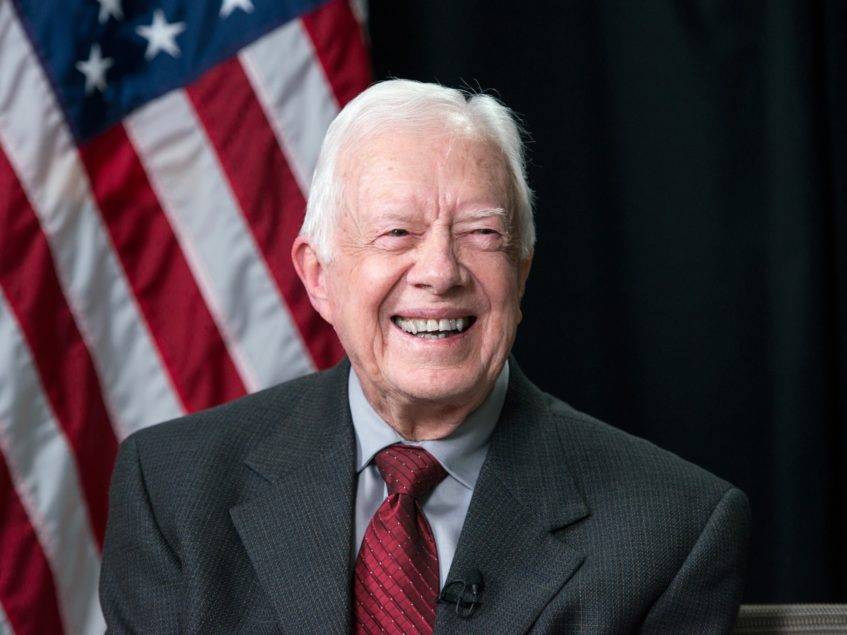Jimmy Carter, the 39th President of the United States and a revered statesman, passed away at the age of 100 on Sunday. He is being fondly remembered for his humble beginnings as a peanut farmer, his efforts to tackle food insecurity through advancements in agriculture, and his dedication to supporting the peanut industry throughout his life.
Born and raised on a peanut farm in Plains, Georgia, Carter inherited his family’s farm supply business and land after his father’s passing in 1953. Despite his eventual rise to the presidency, Carter always maintained a deep connection to his roots in agriculture. During his time in office, he placed his business interests in a blind trust and divested from them after leaving the White House, as reported by the Plains Historical Preservation Trust.
After his presidency, Carter founded The Carter Center, a non-profit organization that focused on global health and development. One of his notable collaborations was with Norman Borlaug, a fellow Nobel Peace Prize winner and renowned scientist, to promote improved agricultural practices in Africa. Julie Borlaug, the granddaughter of Norman Borlaug, emphasized the impact of their partnership in addressing hunger and poverty around the world. She highlighted Carter’s unwavering commitment to ensuring that innovative agricultural solutions reached those most in need.
In a tribute to Borlaug in 2010, Carter praised the scientist for his groundbreaking work in agricultural development, including the use of genetically modified organisms (GMOs) to enhance food production in Africa. Despite facing opposition within the international agricultural community, Carter and Borlaug stood together in advocating for the adoption of new technologies to combat food insecurity.
Furthermore, Carter generously shared his time and expertise with international trade delegations, offering insights into peanut farming and the industry as a whole. The American Peanut Council recognized his contributions in promoting the peanut industry and elevating the crop’s importance both domestically and globally. His efforts helped to showcase peanuts as a vital crop and reinforced their significance in agriculture.
House Agriculture Committee Chairman Glenn “GT” Thompson highlighted Carter’s farming background and the values instilled in him through his upbringing on a family farm. Thompson commended Carter for embodying the principles of hard work and dedication that guided his career in public service.
Rob Larew, the President of the National Farmers Union, reflected on Carter’s legacy and how his agricultural roots shaped his compassionate leadership. Larew praised Carter’s ability to connect with family farmers and ranchers, underscoring the influence of grassroots voices in shaping national leadership.
In conclusion, Jimmy Carter’s legacy as a peanut farmer-turned-president will be remembered for his contributions to agriculture, his advocacy for global food security, and his unwavering commitment to humanitarian causes. His impact on the peanut industry and the agricultural community at large serves as a testament to the enduring influence of individuals who remain true to their roots while striving to make a positive difference in the world.




